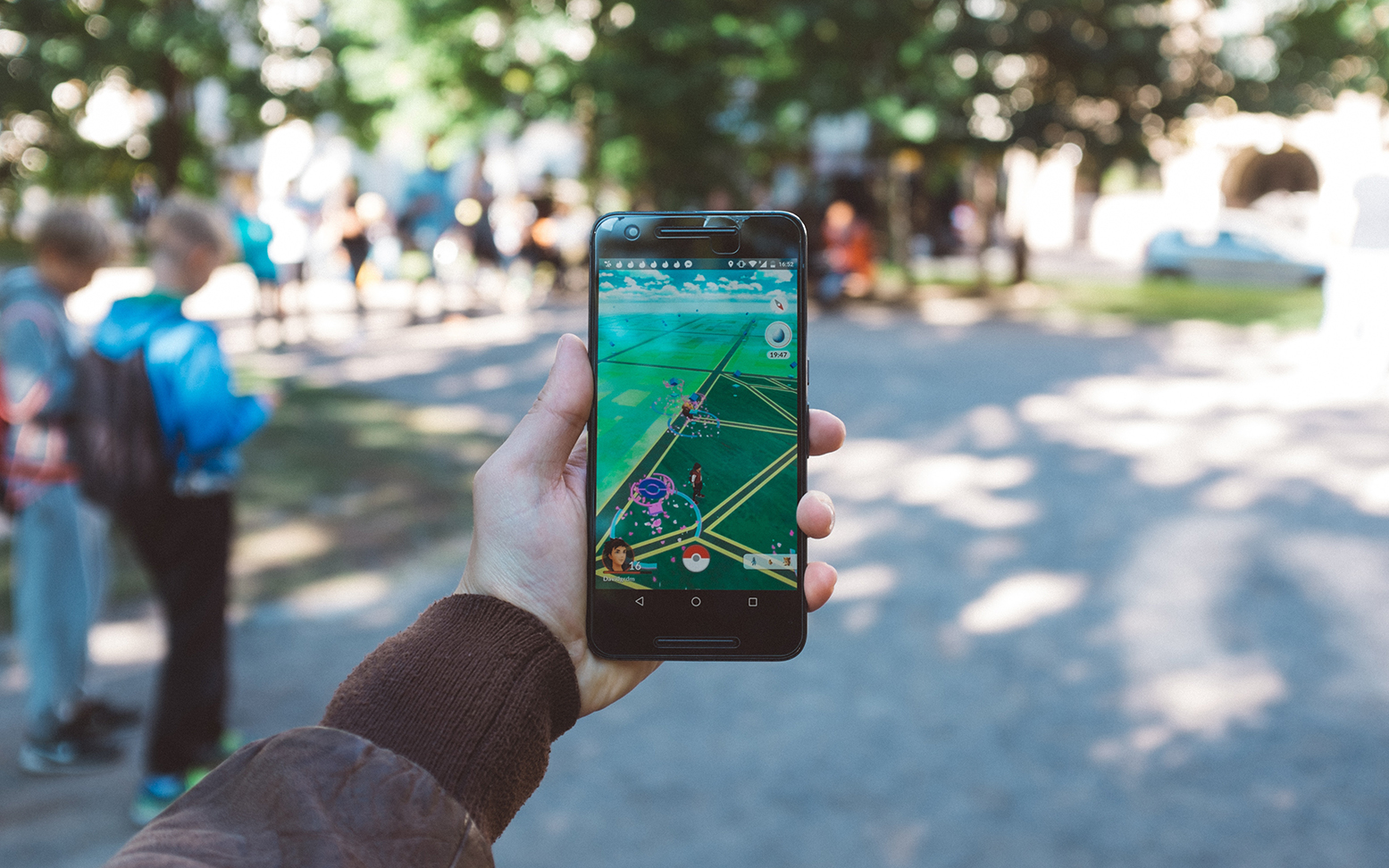Author's note: First of all, allow me to clarify that this article is in no way promoting Pokémon or Pokémon Go. I know that many Christian circles have stayed away from the franchise because of its basis in Japanese mysticism and mythology. Please know that I respect those viewpoints to the uttermost. The purpose of this article is to use the events of this summer as an example in order to make a point, nothing more.
The summer of 2016 was bizarre. In the midst of social turmoil, terrorist attacks around the world, and an election that neither side was very excited about, one might think it a good time to stay home and prepare for the last days. Lock your doors, stay off social media, and bemoan the long lost "good old days" of America. Yet in July of 2016, a sudden influx of young people (and many adults) emerged and took to the streets to do one thing: catch Pokémon. Within a few days, Nintendo's stocks skyrocketed as the game app Pokémon Go became the most used app in America ever. Everyone everywhere was playing Pokémon Go and I'm not one bit ashamed to say I was one of them.
One has to ask, how did this free little mobile game cause so much commotion? Other mobile games have come out that were just as fun, but none have had such an impact on not only the players but society as well. I would submit that this strange occurrence in the summer of 2016 is extremely telling of the longings and mindset of young people today and how to engage them.
Millennials long for "the good old days" too.
Back at the turn of the millennium, I was 11 and "Pokemania" was at its height. On Saturdays we gathered around the N64 and played Pokémon Stadium until it was cool enough to go outside and ride our bikes. I remember seeing the first Pokémon movie in theaters. Whenever we visited my Grandmother, we kids caught the adventures of Ash, Pikachu, Misty, and Brock on my Grandmother's ancient and quite enormous CRT TV. I'm sure I can speak for many of my fellow Millennials when I say that for me Pokémon is mentally associated with my childhood.
So on the Saturday of July 9, 2016, when I downloaded the app out of curiosity and caught my first Pokémon, I had a rush of warm nostalgia that continued to linger. The following week was one of great excitement (and fatigue) as I and my other Pokémon training friends took to the streets and parks of our town to “catch em' all.”
All too often Millennials are stereotyped as only caring about the present and never looking to the past, but I think I speak for a lot of us when I say that I too long for "the good old days." The days when we rode our bikes around the neighborhood without fear and when the summers were long and Saturday morning cartoons were a highlight. The longing for the past is powerful. Powerful enough to make people walk miles just to collect digital characters from their childhood. Millennials may be focused on “the now” most of the time, but they remember the past too. Please don't write us off as uncaring. We care about a lot of things; they just need motivation.
Millennials are starved for real, genuine community.
I am an introvert by nature, but with the introduction of Pokémon Go, suddenly I wanted to go outside, walk around, and interact with people. During that first week of play, many of us gathered at the park and we soon realized that we, and all the other people in the park, had something in common. Complete strangers would tell us where they had found rare Pokémon or a young child would call out "There's an Eevee on the sidewalk!" and everyone would gather around and try their best to catch the elusive digital creature. In a time when the news was filled with stories about the clashes between race, age, and social standing, there in the park we were all united. And yes, it was over a dumb game. But it was one of the most fun things I've done in a long time and the human interaction, not to mention the incredible amount of exercise, was refreshing and encouraging to say the least.
Millennials have been starving for community for a long time and didn’t know it. Social media, while a great tool, cannot replace actual human interaction. What this game has revealed is how much of a draw "real life" community actually has. If the church today truly desires to reach the younger generation, they should strive to develop true community amongst the flock. While many churches have been striving to do this, perhaps what we can learn from Pokémon Go is that 1) sometimes young people have to be fed before they know they are hungry and 2) what they are fed has to be the real deal and not fake or forced. Nobody gets that much exercise for an app because someone tells them to do it. They do it because they “want to be the very best like no one ever was.”
Millennials are more drawn to unity, hope, and an optimistic future rather than controversy and despair.
One could say that playing Pokémon Go was escapism. However, I would say that for a short time, it became something that we could focus on that brought people together rather than isolating them. It was positive, rather than negative, and it transcended social, racial, and generational gaps. This positive aspect of the game was a draw and, as a Millennial, I can honestly say I am 10 times more likely to be drawn to positivity than negativity.
Now get ready… I’m gonna get on my soapbox for this one. It really discourages me to see Christians metaphorically “sitting down,” saying “Well, it’s not going to get any better. I’m going to wait here for Jesus to come back. The future doesn’t exist. America is dying. I’m done.”
Ok, so times are bad. This is true. But, times were bad when Jesus gave the Great Commission. And guess what? That is why He gave it. Also, Jesus didn’t say, “Go and make disciples until times get tough. Then you can give up because I’m coming back soon anyway.” No, He said “Go therefore and make disciples of all the nations, baptizing them in the name of the Father and of the Son and of the Holy Spirit, teaching them to observe all things that I have commanded you; and lo, I am with you always, even to the end of the age” (Matthew 28:18-20). Bad times are why the Church must stand together. They are why AFA exists. Of all the times in history for us to have unshakable hope, perseverance, and optimism it should be now more than ever.
Yes, there are terrible things happening in our world. Religious freedom needs defending, unborn lives need to be stood up for, and the true definition of marriage needs to be hallowed. Yet above all things, hope is more attractive than the darkness that is undeniably surrounding us. Many Millennials aren’t looking for “God” per se, but they are longing for the good old days, real community, unity, and hope. If we wish to engage them, why not let them know everything they are looking and longing for is found in Christ. He died to give us unwavering, unshakeable hope that brings unity and peace to the broken. That fact alone attracts and catches the most longing and wayward heart. No lures or pokéballs required.






